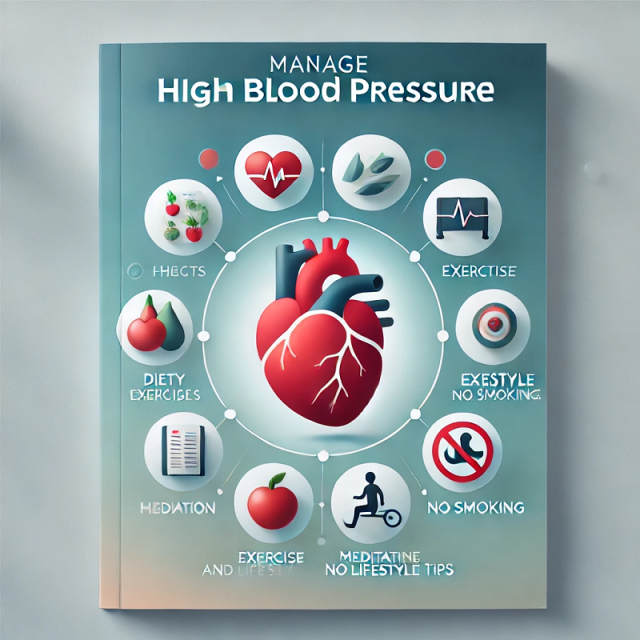What You Need To Know About High Blood Pressure And How To Manage It
- Posted on 22-10-2024
- Medical
- By Saumy Verma
- 185 Views
High blood pressure, also known as hypertension, affects millions of people worldwide. It’s often called a "silent killer" because it typically has no symptoms but can lead to serious health problems like heart disease, stroke, and kidney failure. The good news is that high blood pressure can be managed with lifestyle changes and, in some cases, medication. Let’s break down everything you need to know about hypertension in simple terms.

What is Blood Pressure?
Blood pressure is the force of blood pushing against the walls of your arteries as your heart pumps blood. It’s measured in two numbers:
- Systolic pressure: The pressure when your heart beats.
- Diastolic pressure: The pressure when your heart rests between beats.
For example, a reading of 120/80 mmHg means the systolic pressure is 120, and the diastolic is 80. A normal blood pressure is usually below 120/80 mmHg.
What is High Blood Pressure?
High blood pressure means that your blood is putting extra strain on your arteries and heart. If left untreated, this pressure can damage your blood vessels, increasing the risk of heart disease, stroke, and other health issues.
- Stage 1 Hypertension: Blood pressure is between 130/80 and 139/89 mmHg.
- Stage 2 Hypertension: Blood pressure is 140/90 mmHg or higher.
- Hypertensive Crisis: Blood pressure is 180/120 mmHg or higher, which requires immediate medical attention.
Causes of High Blood Pressure
There isn’t always a clear cause of high blood pressure, but several factors can increase your risk:
- Age: Blood pressure tends to rise as you get older.
- Family history: If your parents or close relatives have high blood pressure, you’re more likely to develop it.
- Lifestyle factors: Poor diet, lack of exercise, smoking, and excessive alcohol intake can raise your risk.
Symptoms of High Blood Pressure
Most people with high blood pressure don’t have any noticeable symptoms. That’s why it’s important to get your blood pressure checked regularly, especially if you’re over 40 or have a family history of hypertension.
In rare cases, very high blood pressure may cause:
- Headaches
- Dizziness
- Chest pain
- Difficulty breathing
- Blurred vision
If you experience these symptoms, see a doctor immediately.
How to Manage and Prevent High Blood Pressure
Managing blood pressure often involves a combination of lifestyle changes and medication. Here are some practical steps you can take:
1. Eat a Healthy Diet
- Reduce salt intake: Aim for less than 1,500 mg of sodium per day.
- Eat more fruits, vegetables, and whole grains.
- Avoid processed foods, which are often high in salt and unhealthy fats.
2. Exercise Regularly
Aim for at least 30 minutes of moderate exercise most days of the week. Walking, swimming, or cycling are great options.
3. Maintain a Healthy Weight
Losing even a small amount of weight can help reduce your blood pressure if you're overweight.
4. Limit Alcohol and Quit Smoking
Excessive alcohol and smoking can raise blood pressure. Quitting smoking and limiting alcohol can have significant health benefits.
5. Manage Stress
Chronic stress may contribute to high blood pressure. Try relaxation techniques like deep breathing, meditation, or yoga.
6. Take Your Medication
If your doctor prescribes medication, be sure to take it as directed. Skipping doses can cause blood pressure to rise again.


